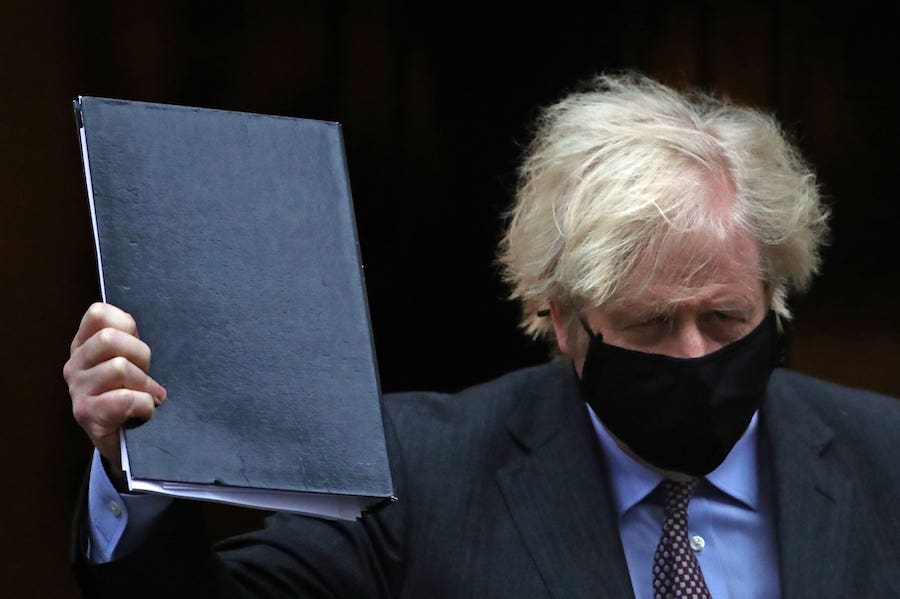A preview of the four-stage plan to ease England’s lockdown
A four-stage plan could see England’s coronavirus restrictions finally lifted by June 21, Boris Johnson has announced
Pupils will return to England’s classrooms on March 8 in the first stage of a plan that will take until the summer.
In the first phase, all pupils in England’s schools are expected to return to class from March 8.
Socialising in parks and public spaces with one other person will also be permitted from that date.
A further easing of restrictions will take place on March 29 when the school Easter holidays begin – with larger groups of up to six people or two households allowed to gather in parks and gardens.
Other measures in the road map set out by the Prime Minister include:
– From April 12 at the earliest: shops, hairdressers, nail salons, libraries, outdoor attractions and outdoor hospitality venues such as beer gardens will reopen.
– From May 17 at the earliest, two households or groups of up to six people will be allowed to mix indoors and limited crowds will be allowed at sporting events.
– From June 21 at the earliest, all remaining restrictions on social contact could be lifted, larger events can go ahead and nightclubs could finally reopen.
Making a statement in the Commons, the Prime Minister said: “The threat remains substantial with the numbers in hospital only now beginning to fall below the peak of the first wave in April.
“But we are able to take these steps because of the resolve of the British people and the extraordinary success of our NHS in vaccinating more than 17.5 million people across the UK.”
He added that “no vaccine can ever be 100% effective”, telling MPs: “So, as the modelling released by Sage today shows, we cannot escape the fact that lifting lockdown will result in more cases, more hospitalisations and sadly more deaths.
“And this would happen whenever lockdown is lifted – whether now or in six or nine months – because there will always be some vulnerable people who are not protected by the vaccines.
“There is therefore no credible route to a zero Covid Britain, or indeed, a zero Covid world and we cannot persist indefinitely with restrictions that debilitate our economy, our physical and mental wellbeing and the life chances of our children.”
Alongside the four-step plan, the Prime Minister launched a series of reviews – including on whether people should be able to show if they have had a Covid-19 vaccine or a negative test.
The work will look at whether “Covid status certification” could help reopen the economy by allowing people who have received a jab or a negative test result to do things which would not be allowed for those who could not prove their status.
Officials recognise that there are moral and ethical questions as well as practical ones for any such move, which has been highly controversial in Westminster.
A research programme will use pilot schemes involving testing and other measures to run events with larger crowd sizes.
International travel rules will also be reviewed, with May 17 targeted as the earliest possible date for a foreign holiday.
A further piece of work to conclude by June 21 will examine social distancing requirements – including hugs with friends and relatives – the use of face masks and requirements to work from home.
The measures are expected to be put to a Commons vote before the House rises for Easter in late March.
The Press Association
Latest posts by The Press Association (see all)
- BBC to air two-part Call The Midwife Christmas special - December 23, 2024
- 6 mind sports to exercise your brain and keep you sharp - December 20, 2024
- Quiz: What classic Christmas food or drink are you? - December 20, 2024
- Leftover turkey and watercress pie - December 20, 2024
- Catherine and William choose family shot for Christmas card photograph - December 19, 2024




















